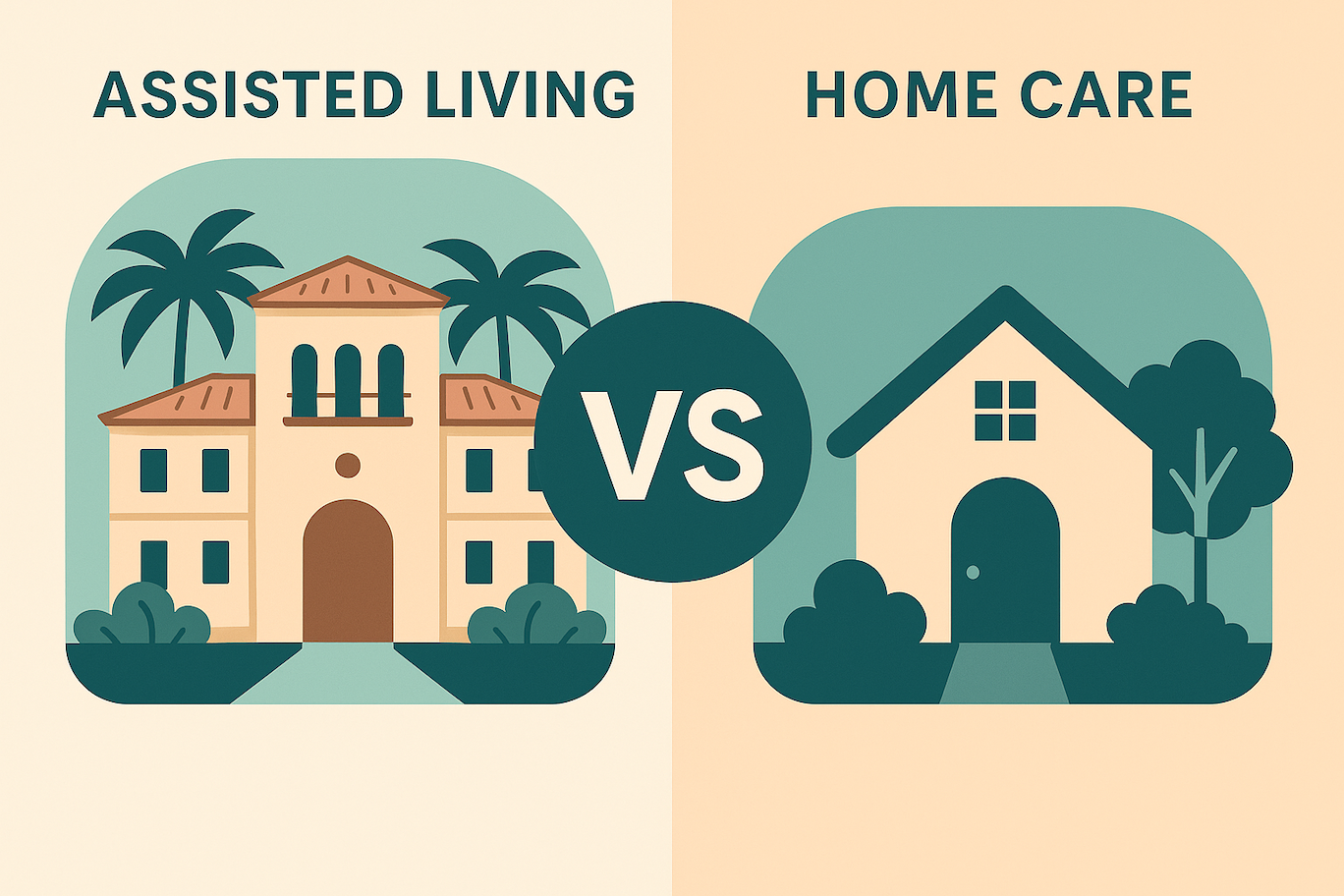When it comes to supporting an aging loved one, families often compare assisted living vs. home care. Both options provide valuable care, but they differ in environment, structure, and the type of support offered. Understanding these differences can help you make the best decision for your loved one’s needs, preferences, and circumstances.
What Is Assisted Living?
Assisted living communities offer a supportive residential environment where older adults receive help with daily tasks while maintaining as much independence as possible. Residents have private or semi-private apartments and benefit from services like prepared meals, housekeeping, transportation, social activities, and wellness programs. Staff are available around the clock for assistance with personal care, medication management, and emergencies.
Beyond practical support, assisted living communities foster a sense of community and connection. The built-in social opportunities can reduce feelings of isolation and promote emotional well-being. For families, assisted living offers reassurance that their loved one is safe, cared for, and engaged.
What Is Home Care?
Home care allows older adults to remain in their own homes while receiving professional support. Caregivers visit for scheduled hours to assist with tasks like bathing, dressing, meal preparation, medication reminders, and companionship. Some families combine home care with additional services, such as meal delivery or transportation programs.
This approach offers the comfort of a familiar environment, but it also requires careful planning. Families often coordinate care schedules, oversee household maintenance, and provide supplemental care themselves. The flexibility of home care can work well for seniors who need minimal assistance or have a strong local support network.
However, home care may not provide the same level of social engagement or structured activities available in a residential community. Seniors who live alone at home can experience isolation, and family caregivers may face burnout if support needs increase.
Comparing Assisted Living and Home Care
There is no one-size-fits-all answer to the assisted living vs. home care question. The right choice depends on your loved one’s health, preferences, and available family support.
In assisted living, support is readily available at any time of day or night, and the environment is specifically designed for senior safety and comfort. Social opportunities, dining, and wellness programs are all part of daily life. These communities are equipped to adapt as needs evolve, providing additional services like memory care if required.
With home care, seniors retain the familiarity of their personal space, but care may be limited to the hours a caregiver is present. Family members often fill gaps in care, which can become challenging if medical or mobility needs change over time. It is important to evaluate how sustainable a home care arrangement is in the long term.
Factors to Consider
As you weigh assisted living vs. home care, consider these key factors:
- Level of assistance needed now and anticipated future needs
- Safety risks in the home environment
- Opportunities for social engagement and community involvement
- The availability and willingness of family caregivers to supplement professional care
- Budget and financial resources to sustain care over time
- Your loved one’s personal preferences and comfort level with change
Think about whether your loved one would thrive in a social, structured environment with ready access to amenities or whether they strongly prefer remaining at home despite the added challenges that might pose. Remember that needs often increase gradually, and a plan that works today may need reevaluation in the future.
Additional Considerations
For some families, home care can serve as an interim solution during recovery from illness or surgery, with the intention of transitioning to assisted living later on. In other situations, assisted living is the better immediate fit, offering peace of mind that professional support, social connection, and a safe environment are all in place from the start.
Visiting several communities and speaking openly with care providers can help clarify what makes the most sense for your family. Observing how staff interact with residents, sampling meals, and asking about activity programs can all offer valuable insight into assisted living as a lifestyle choice.
Conclusion
Choosing the right care option is a deeply personal decision. What matters most is finding the right balance of safety, support, and quality of life for your loved one.
At Courtyard Gardens, we help families navigate these decisions every day. We welcome your questions and invite you to explore how our assisted living and memory care programs can provide comfort, connection, and peace of mind.


